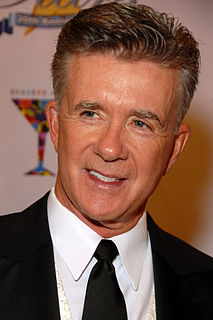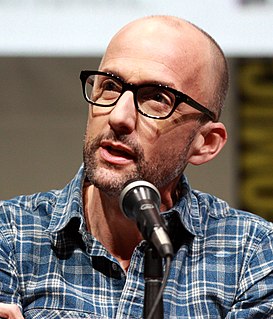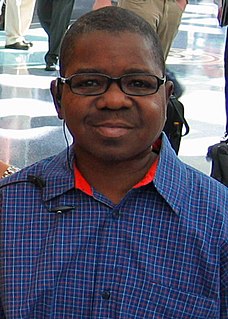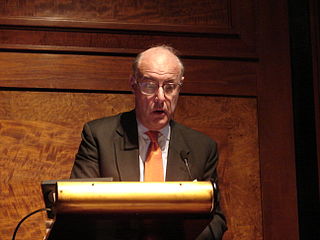A Quote by Alan Thicke
I did write a lot of TV themes - I wrote about 45 of them, and a couple of which are still reference and popular today, like 'Diff'rent Strokes' and 'Facts of Life.' But I was a limited musician.
Related Quotes
I remember lying on the floor of my room, staring at a black-and-white television for most of the '80s - watching 'Diff'rent Strokes,' 'Facts of Life,' 'Silver Spoons,' Saturday morning cartoons, and 'Murder, She Wrote' while eating an insane amount of Stouffer's French bread pizza. I was sucked into it all.
I took to writing as my medicine to help me stay afloat in acting career journey. I wrote about me breaking hearts, and my heart being broken. I wrote about my views whether they were liberal or conservative. I wrote about everything. I wrote about my life. When I did not have paper coming in as green backs, I'd use random pieces of paper for stories. It was like, I got no money, but I have paper to write. So I wrote.
I've been writing music since I was about eight. I would write sporadically. I wrote a lot of music in high school. I guess the oldest song on the record ("I Thought I Saw Your Face") is about eight years old. It's the old "I had my whole life to write my first album and six months to write the second one." I did, to some degree, but actually, a lot of the songs that ended up on the record, I wrote really recently. So it varies.
If somebody asks me about the themes of something I'm working on, I never have any idea what the themes are. . . . Somebody tells me the themes later. I sort of try to avoid developing themes. I want to just keep it a little bit more abstract. But then, what ends up happening is, they say, 'Well, I see a lot here that you did before, and it's connected to this other movie you did,' and . . . that almost seems like something I don't quite choose. It chooses me.
I had written a lot about my dog dying before. I wrote a newspaper column about it and it turned out to be the most popular column I'd ever written. That and the lame Joni Mitchell column I did. But the dog column, my god! People love dogs. Anybody who writes regularly should know, when in doubt: dogs! If you're a columnist, when in doubt, write a column about the culture of narcissism - like a scolding column about the culture of narcissism - or write something about dogs. That's the homerun in my take.
In the early 21st century, it is easy to condemn the Bond books for being racist and imperialist, sexist and misogynist, elitist and sadistic. But this is merely another way of saying that we cannot understand the Bond books without reference to the personality, the outlook and the 'Tory imagination' of the man who wrote them, and to the time in which he wrote them; and that we cannot understand the 1950s and 1960s without some reference to them, and to him.


































